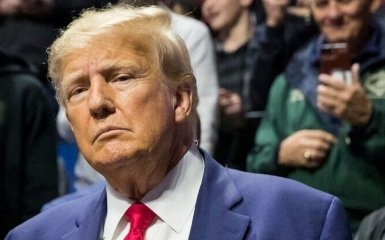Ukraine's President Volodymyr Zelenskyy may use his persuasion power to secure further support from the US.
Can Zelenskyy sway Trump to his side
"When you're fighting an existential war, the last thing you need to worry about is the outcome of an election you can't influence because other people are making the choice. You'll have to work with that choice, whoever it is," expressed Dmytro Kuleba, Ukraine's Minister of Foreign Affairs, this opinion during an interview at the beginning of this week.
When asked how this year's elections in Europe and, more importantly, in the United States, could affect Ukraine, which persistently defends its independence and sovereignty from its aggressor neighbour Russia, Kuleba said that Ukraine "will have to find a way to interact with the winners of the elections." This could include former US President Donald Trump — if he manages to defy the traditional rules of political power, as he has often done in the past.
How to protect Ukraine from Trump
The prospect of Trump's return to the White House looms over this war, and Ukraine and Europe already have an uneasy feeling about what a second Trump presidency might look like. A crucial $60 billion aid package proposed by US President Joe Biden has been stalled in Washington for months, mainly because of pro-Trump Republican lawmakers.
Such political upheavals and shocks will likely intensify as the US presidential election approaches. And many lawmakers may want to align themselves with Trump to gain an electoral advantage.
Trump has shown indifference to Ukraine's territorial integrity, saying he could quickly end the war within 24 hours by insisting that Ukrainian President Volodymyr Zelenskyy and Russian President Vladimir Putin agree to a settlement — essentially meaning Moscow would get a piece of Ukraine and will resume the war at her convenience. But when the party pre-election games are over, what will Ukraine's role be in the Trump White House? Will it be seen in its whole light—as defining the future of global security, transatlantic relations, and even the security of America itself?
Mykhailo Podolyak, an aide to Zelenskyy's office, bets it will be so. He is convinced that in this war, "America above all" and "Ukraine above all" are actually the same thing.
I understand that the domestic political agenda is dominating because they prepare for the presidential election. But investments in Ukraine are investments in America's reputation, dominance, and right to set global rules and ensure that they are not violated, he said in an interview with Politico.
An optimistic Podolyak also offered one of the most intriguing explanations for why Trump might continue Biden's policy of supporting Ukraine. He believes that the obvious "mercantile benefits for the American military-industrial complex" consist in supplying Ukraine with weapons and ammunition and demonstrating how much more effective and sophisticated their weapons are on the battlefield compared to Russia's. And if all else fails, Podolyak relies on Zelenskyi's communication skills to win Trump's favour.
No one doubts Zelenskyy's rhetorical skills—he has repeatedly proven his ability to win the hearts of his interlocutors and establish connections with various audiences. However, some people do not perceive his persuasiveness.
Zelenskyy, for his part, previously stated that if Putin hopes that Trump's re-election will bring Russia a military victory, then the Russian leader is mistaken. Last September, he said Trump would "never" support Putin. However, that confidence has since evaporated, with Zelenskyy expressing unequivocal concern about Trump's audacious suggestion that he could end the war within a day.
Ukrainian lawmakers also find some comfort in the fact that Trump agreed to supply lethal weapons to Ukraine while in office, reversing former US President Barack Obama's refusal. Kuleba expressed a similar opinion in January.
Who sold the first American weapons to Ukraine? President Trump [sent us] Javelins. Who launched the program of free transfer of the first naval ships, Island and Mark VI boats to Ukraine? Trump. Who fought the "Nord Stream-2" project? It was Trump, Kuleba noted.




